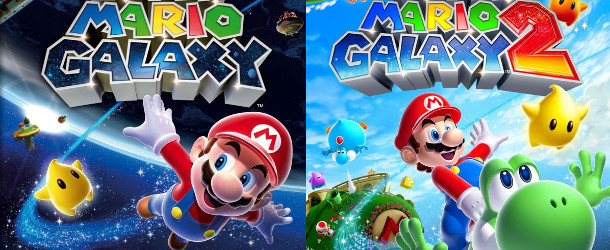 There’s an ancient Internet proverb that goes something like… well let’s just look at it in its original text.
There’s an ancient Internet proverb that goes something like… well let’s just look at it in its original text.
Despite lacking a bit of tact or class, the general idea of the above post highlights an interesting point. Do gamers crave change and novelty, or will it always be met with frustration and the adoration of the previous status-quo?
Given the success of Wind Waker HD, a glorified port of one of the games oh-so-eloquently mentioned above, which caused a 685% increase in UK Wii U sales, among other achievments, it’s hard to argue that the consumers of the gaming industry really crave nuances in their favorite franchises as much as they claim sometimes. But just because a redux of an old game does well, that doesn’t mean that different games can’t do well as a result, right?
Sonic Chronicles: The Dark Brotherhood is a Sonic the Hedgehog RPG. Now, it seems a little odd, but it is definitely and unabashedly different from the rest of the Sonic series. And you know what? It does a pretty decent job of creating a game in an entirely different genre. Turns out, all those characters that have been cropping up over the years, to the bemoaning of some fans, really have a chance to shine during the slower pace of an RPG story than that of a platformer. The combat isn’t so bad either, but in the end the game was just overlooked as a weird little excursion, and the sequel they planned for never came to pass. New concept, but no one went for it.
Or, how about Banjo-Kazooie: Nuts and Bolts? People were clamoring for any resurrection of the Banjo series after the sequel, yet threw a fit when the game finally came out. Instead of rejoicing that their beloved IP had come out with a new game, many fans said that it wasn’t the game they wanted, what with it being about driving cars and everything. And fair enough, expectations are a good thing to meet, but the the particular level of outrage at this different Banjo-Kazooie is probably what has kept any more games from coming out to this day.
And, let’s not forget the other side of the spectrum. Remember Super Mario Galaxy 2, otherwise known as an expansion pack for Super Mario Galaxy? Don’t get me wrong, I love both games. However, I find it a little odd that everyone was OK with Galaxy 2 being nearly the exact same game, whereas New Super Mario Bros. Wii was condemned for being to similar to its DS counterpart, despite the fact that NSMBWii had incorporated four-person multiplayer into a platformer, which certainly wasn’t the norm at the time.
What’s got me all up in a huff about this recently is the release and reception of Yoshi’s New Island, a 3DS game which seems to get panned because it’s “the same as the original“. But this is that same original that has been almost universally adored by fans both old and new (and personally, my favorite game of all time). Yet, this hasn’t been some sort of wistful, ” I like all the things they kept that were good, just add new stuff too”. This was counting against the game for not being different enough from the title that was so successful before. Given some of the examples I’ve shown here, I’d be willing to bet there would be just as many people complaining about what was changed and how they shouldn’t have strayed from the original, had they changed anything.
In my opinion, there really needs to be a consensus on this as gamers. Either we take the risks with our wallets to try a game that’s outside of our comfort zone, whether it be a new spin on a franchise or something completely different, or we allow ourselves to admit that often times we like what was done before better than anything new that can be thrown at us.
Or, you could just buy the new Mario game every year then complain about how it was the same as the last five.

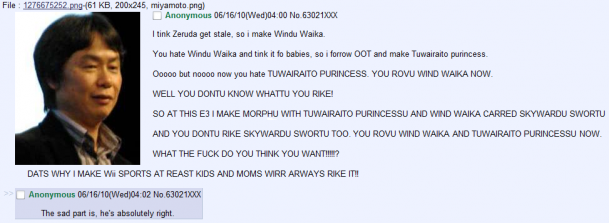
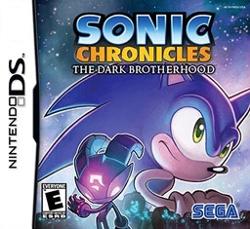
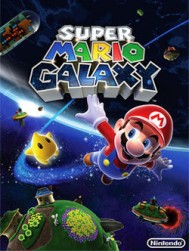
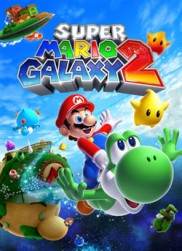
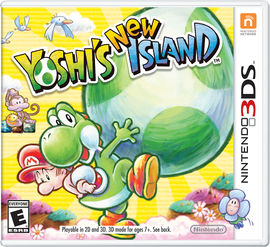
Seriously. I look at the opinions people have about the Mega Man series, and it’s either “WAAAAAAAH, THIS GAME IS DIFFERENT,” or “WAAAAAAAH, THIS GAME IS EXACTLY THE SAME.” And then when people DO like a game, it’s “YAAAAAAAY, THIS GAME IS EXACTLY THE SAME AS THE ONE I LIKED THAT WAS DIFFERENT.”
I try to at least consistently fall into the last category. Mega Man, like many other series, is one where consistency is done right, in my opinion.
Totally agree with the overall point of this article, “gamers” (I hate that term, but I’ll use it.) generally have no idea what they really want, latch onto ideas of what they’ve been told they should want, and have a very strong tendency to be over-the-top venomous when they don’t get it.
Though, as far as Nuts & Bolts, I get the disappointment and think the gaming community was right to voice that (constructively, not personal threats and such which, I’m certain, happened) because going along with it and buying it wouldn’t have necessarily said “We love Banjo Kazooie!” It may have been read as “We love this crappy Banjo Kazooie/Gummi Ship game!” or, possibly worse “We will buy literally any garbage you slap the Banjo Kazooie name on.”
Right, but I think the response got too negative to the point where people gave up on the franchise, rather than thought “Well maybe we should make one closer to the original.” I don’t really know if there was a situation where that could have worked, but honestly I think the severe level of backlash it got was a bit unwarranted.
Oh yeah, I’m sure it went way further than was necessary.
Ahem! I believe this is a good response to your dilemma!
They say you can’t please everyone. Meaning, the masses are so varied in preferences, age, you can’t accommodate everyone.
But you can still please MOST people SOME of the time. Look at the Super Metroids and Super Mario Bros. 3s of the world. Take a good idea, refine it, and understand the core of your game well enough to innovate within the boundaries of what still feels “right.” Listen to the feedback of your fans. If you managed to hook some players with your first game, you shouldn’t have to accommodate anyone if the next sequel or spinoff or remake feels like a natural evolution of the series.
Invite the fans along for the journey; don’t just throw things at the players and see what sticks. Making good games is only part of attracting fans; how you approach making good games is often equally important. That’s why Metroid: Other M is so divisive among fans that like all the previous games, and Metroid Prime is only really a problem for people who don’t like first-person shooters. The latter was an evolution of the series; the former was a brand-new game.
I do agree with you. But, keep in mind that the Super Metroid and Mario 3 were still very early on in their franchise. It was also a time where I imagine that the marketing teams really went off of sales. Mario 2 (Super Mario USA) was certainly very different, but was there enough to tell Nintendo that people liked or didn’t like it? I think games came packed with survey cards back then, but who really sent those in.
So, let’s look at Super Metroid. It was a refinement of the orignal and the sequel on Game Boy (Return of Samus). Having a title that played and felt like the originals was still probably OK, since the original wasn’t that old, and it was only the third chance. They could have never gone to the third dimension really, but isn’t that what sells games? If people REALLY want to play a game that’s like the quality classics like Mario 3 and Super Metroid, why not simply replay those, either in their original cart form, ROM, Wii Shop, etc.?
And, going back to the “gaming is art” thing, no one wants to look at twenty different versions of the Mona Lisa. Da Vinci may have said “You know what, I’m going to try finger painting”. Why not? It’s not as if by trying to do finger painting, the Mona Lisa is destroyed. But, perhaps it would tarnish people’s outlook on it. Does Super Metroid look worse knowing that the same shop also produced Other M? Personally, I don’t think so, but it may to some people.
You’re making it sound like the earlier games in a series are usually better than the later ones, and that people would be better off replaying old games than encouraging developers to make new ones that feel like the old ones. I respectfully disagree.
Just look at the favorable reviews that have been given to Mega Man 9-10 and The Legend of Zelda: A Link Between Worlds, entire decades into their respective franchises. Think about applying that same logic to books or movies: “Yeah, it’d be nice to see a sequel to Fellowship of the Ring, but it’s a classic and we shouldn’t waste our time with something that probably won’t live up to the same level of quality or offer anything new and meaningful.”
The crux of the article is that gamers have no idea what they want from a sequel or remake, but I think it’s safe to say they generally want MORE. How a developer interprets what “more” means is what makes or breaks the sequel or remake. When I want more Mega Man, I want more of the gameplay. When I want more Space Quest, I want more of the story. That’s why I dislike Mega Man Powered Up and really enjoy the VGA version of Space Quest I: they’re both remakes of the first games in their respective series, but the latter fleshes out the original story while the former completely changes the original gameplay.
Da Vinci can fingerpaint all he likes, but if a patron is paying him to paint something that captures the essence of the Mona Lisa, he’s gotta know the patron and his own painting well enough to understand whether slapping a moustache on the old girl will be ingenious or an insult.
I think a lot of it comes down to expectations. Whether they expect a sequel to be nearly identical to the original or quite different, they believe that it must be “as good or better”, with “good” being a very heavy word.
I’m thinking about movie series. Except with a few exceptions, nearly every movie sequel is almost viewed as being worse than the original. There are exceptions to this, like Star Wars and Terminator. Is the sequel as a stand alone entry really worse than the original? It’s hard to say because a sequel often requires you to watch the original which makes it impossible to isolate it from the original.
I’m not seeing a button to reply to your comment, Mark, so I’ll just reply to my previous one. Jeddy/Kevin, that’s something for the suggestion box.
Now you’re onto something. Managing expectations is a crucial part of making a successful sequel/spinoff. Going back to the Mega Man series, I’ve found that several of the games (MM4 and MM7 in particular) have gotten a bad rap for failing to live up to skewed player expectations.
I’m playing through Mass Effect 2 right now, and after close to 30 hours of gameplay, I’ve come to the conclusion that it’s a great game but an appalling sequel. My expectation was that a sequel would use the same basic game mechanics and retain the same basic feel as the first game, and then expand on some parts and improve on others. Instead, ME2 fixed EVERY problem with the original and then completely overhauled every aspect that was NOT a problem, often breaking things that weren’t broken.
The end result is a game that feels like a drastic reboot with shared continuity, rather than a sequel. If you happen to like the new combat style, character customization, and darker tone of the game, then it’s not a problem. But the game does absolutely nothing to gently steer you toward appreciating these changes if your expectations were different.
I keep coming back the importance of the developers retaining the core of their product from one installment to the next. Terminator 2 is successful because it stays focused on the central conceit of the first movie (unstoppable robot from the future tries to kill everyone) while following the story to its logical next step and being an altogether well-crafted film, independent of its place in the franchise. I much prefer the first movie for a number of reasons, but I still recognize a good film when I see one. I expected a time-traveling robot on a rampage, and that’s exactly what I got.